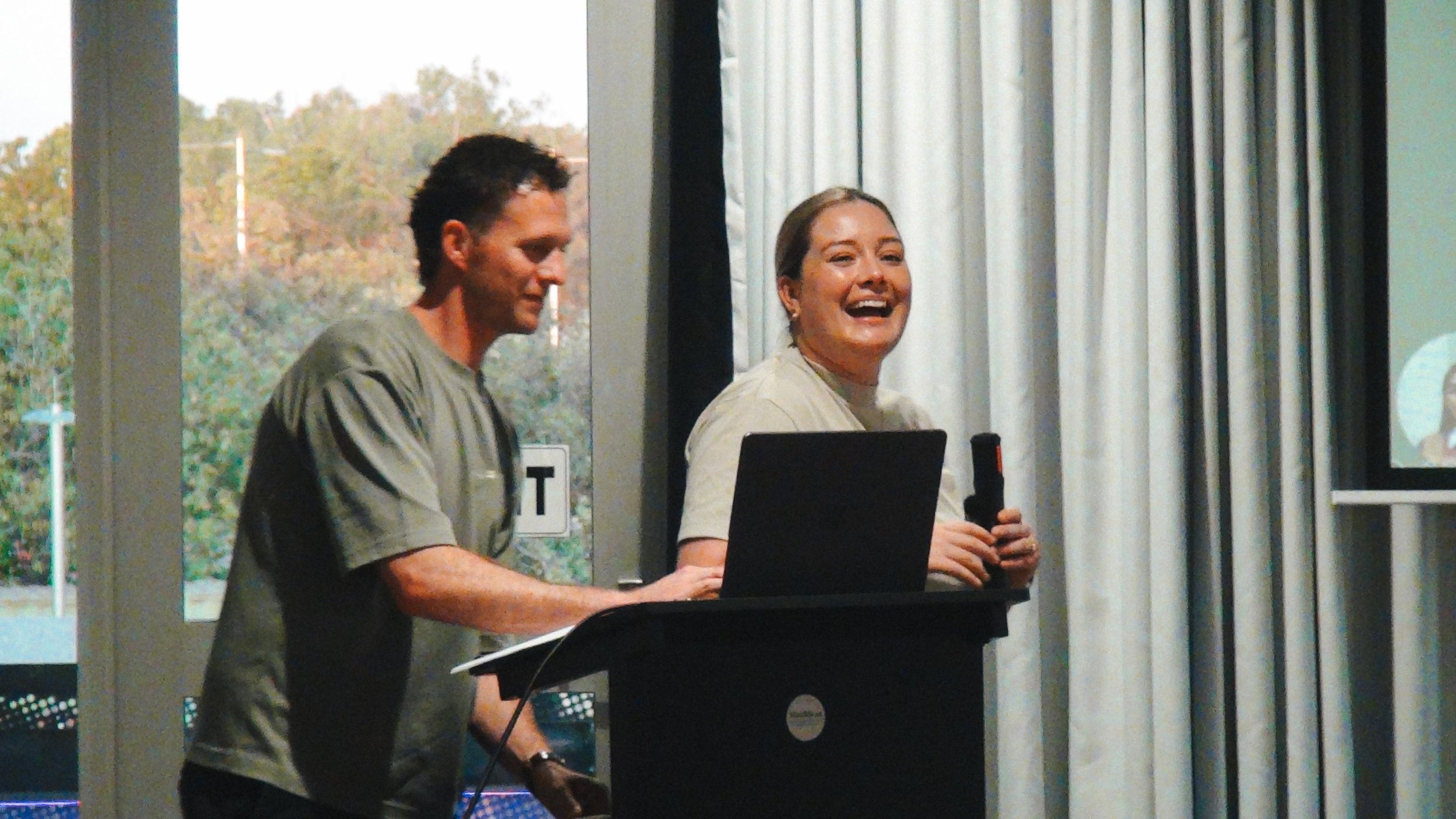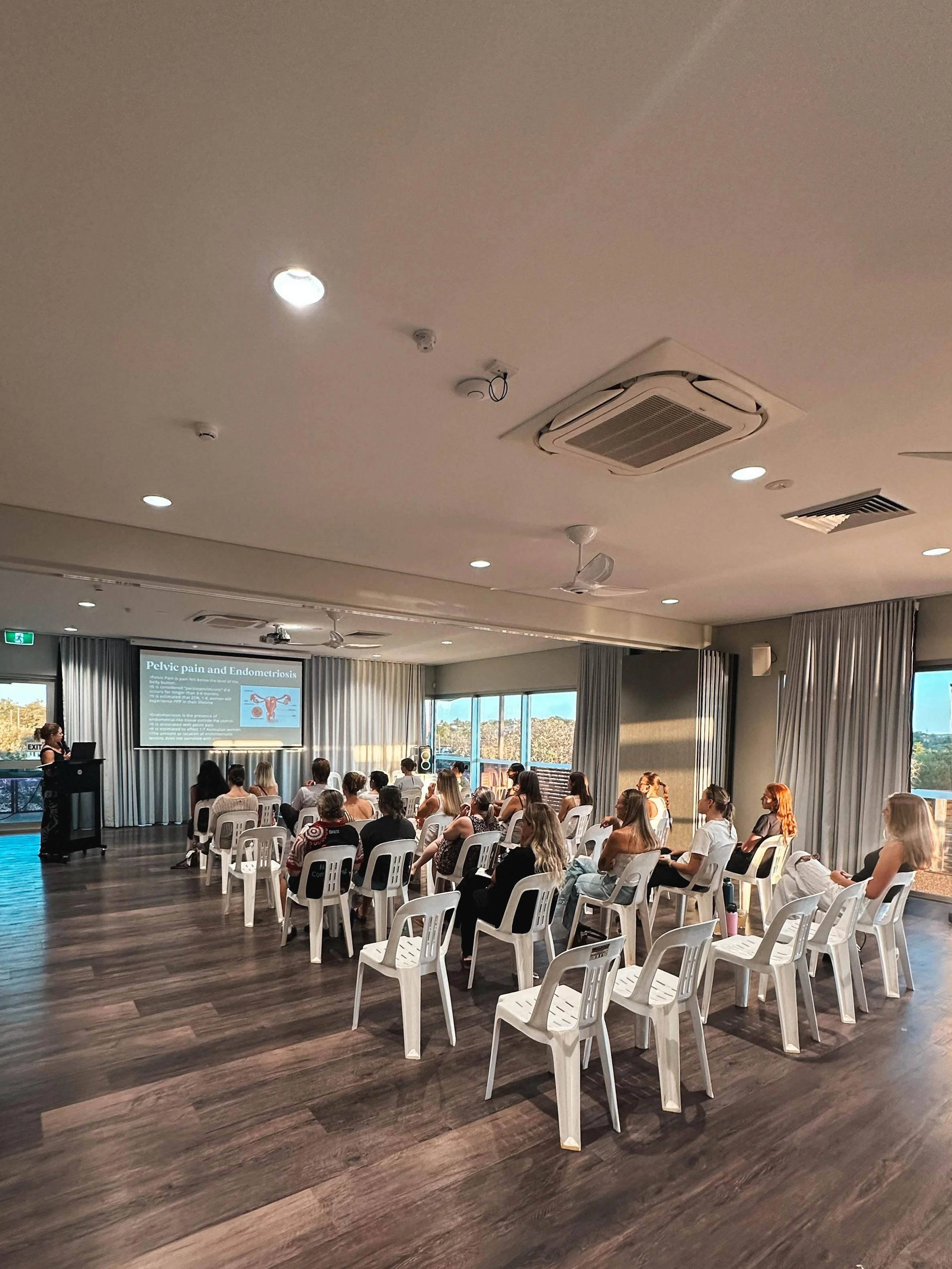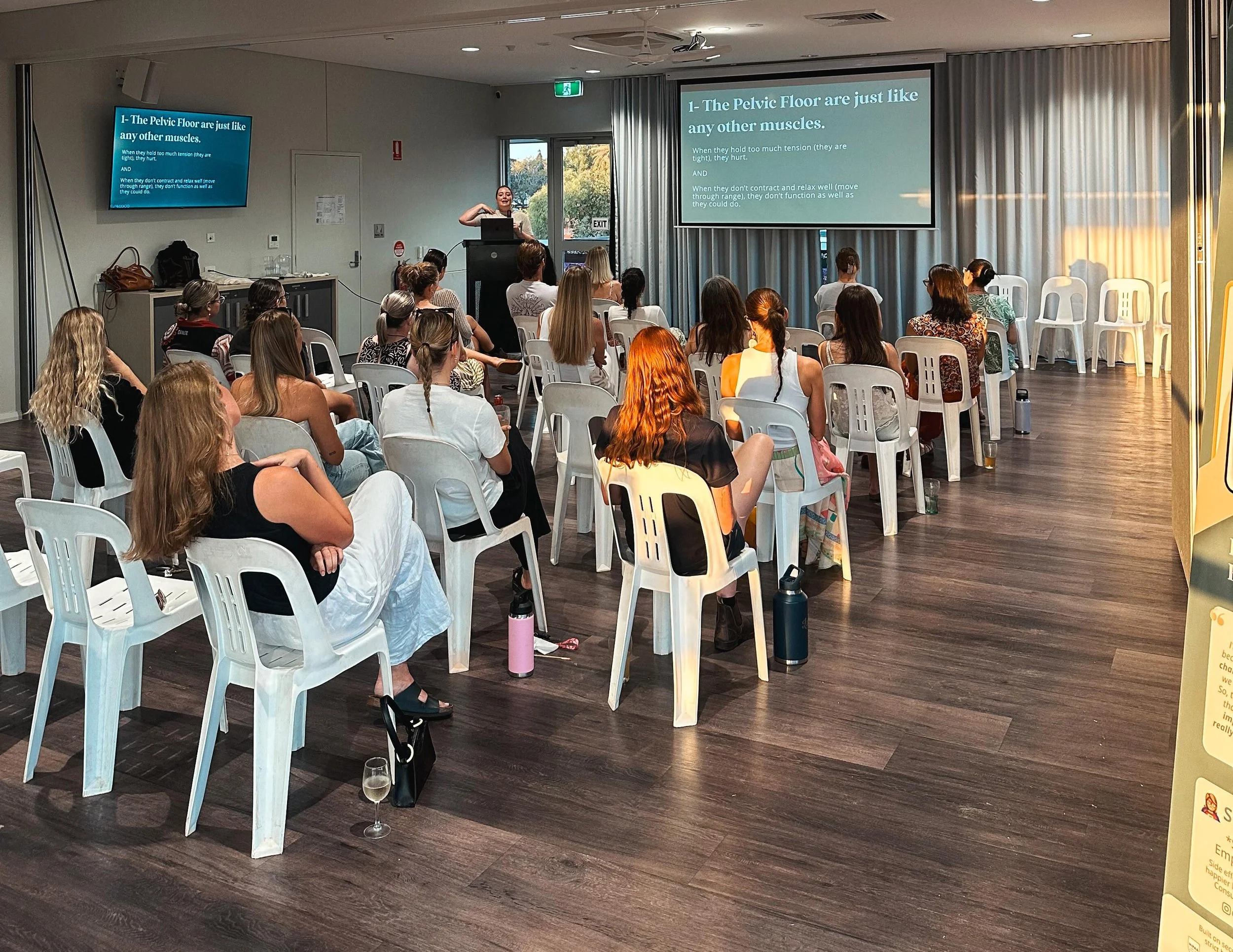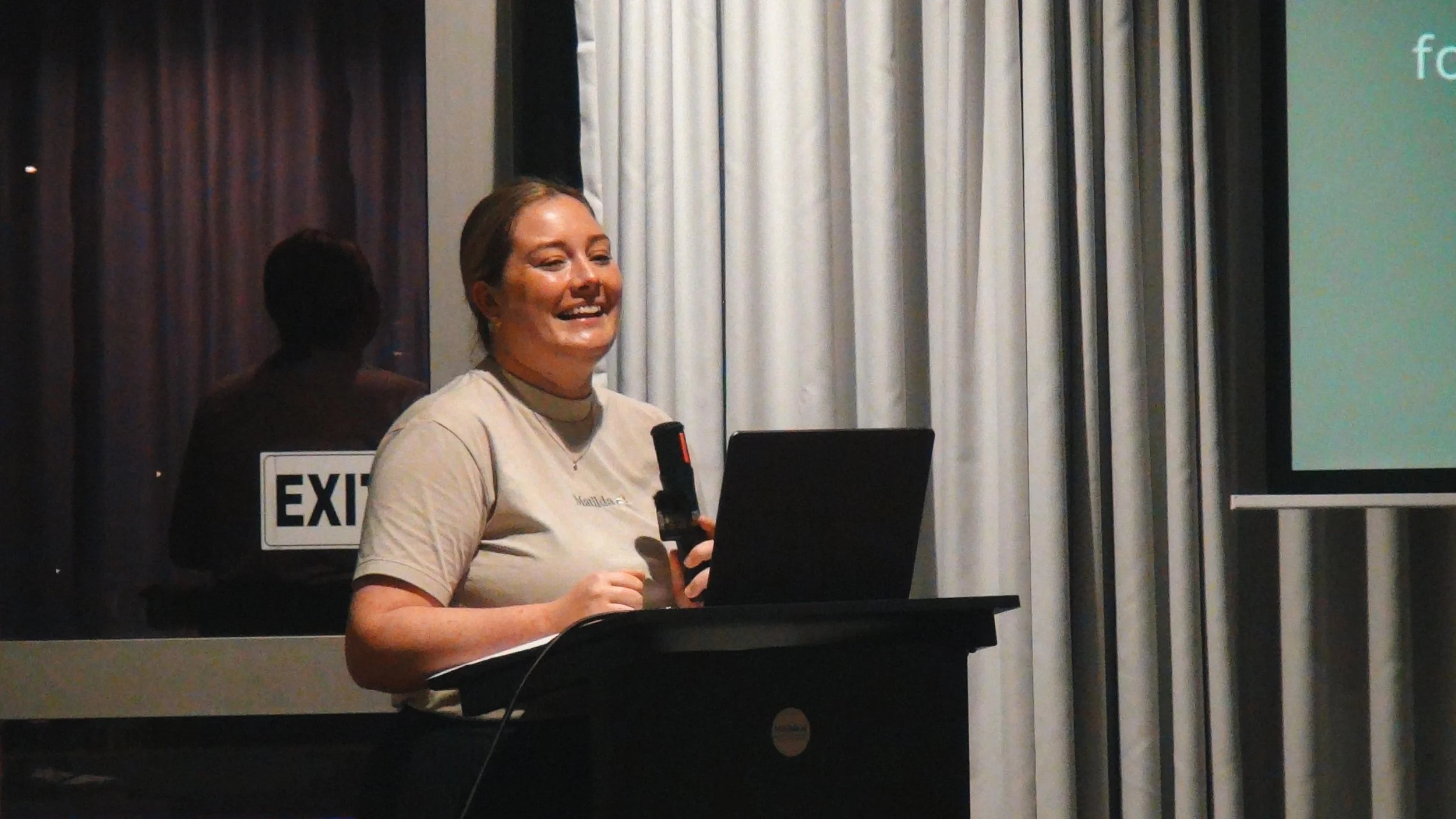Improving Regional Endometriosis and Pelvic Pain Care: Reflections from Our Sunset Sessions in Broome
On two warm evenings in Broome in early September 2025, Matilda Health hosted two events for the local community:
A community focussed event called: “Beyond the Pain, a sunset session on endometriosis and pelvic pain” and a
Clinician focussed event called: “Connecting Care: Endometriosis/Pelvic Pain, Surgery and Regional Solutions” incollaboration with Rural Health West and the Kimberley Health Professionals Network.
The events brought together people with lived experience, clinicians, and community members to discuss the challenges of care, important tips/facts and clinical pearls, and opportunities to improve endometriosis and pelvic pain management, particularly before and after surgery.
Acknowledging Country
Whilst we are writing this blog back on Whadjuk Country, we respectfully acknowledge the Yawuru people, Traditional Custodians of the land on which we gathered in Broome, and pay our respects to Elders past, present, and emerging. Aboriginal and Torres Strait Islander peoples have lived healthily, shared knowledge, and supported one another on Country for more than 65,000 years, so we respectfully acknowledge this significant and ongoing contribution and seek to work collaboratively to improve the lives of all.
Acknowledging Funding
These regional events form part of a series of event’s we are hosting across regional Western Australia, with more events for Kalgoorlie and the South-West in planning. These events are generously supported as part of a grant Matilda Health received from the WA Department of Health, Future Health Research Innovation Fund. We’d also like to thank Sara Hennessy from the Kimberley Health Professionals Network, Hannah and the team at the Broome Surf Lifesaving Club, and Emma and the team from Mabu Mayi for their support.
Why Education about Endometriosis and Pelvic Pain Matters… particularly outside of Metropolitan Australia
Endometriosis affects 1 in 7 people assigned female at birth in Australia (https://www.aihw.gov.au/reports/chronic-disease/endometriosis), yet access to timely and supportive care remains inconsistent, particularly in regional and remote areas. Delayed diagnoses, fragmented services, and limited guidance before and after surgery can all impact recovery and long-term outcomes.
Our sessions in Broome aimed to:
Raise awareness of gaps in endometriosis care
Highlight the importance of pre- and post-surgery optimisation
Share evidence-based approaches to support patients through recovery
Connect local health professionals to support connected and collaborative multi-disciplinary care locally
Provide a space for people with a lived-experience to learn, feel validated, and support each other together
The Gaps We See
Whilst a myriad of gaps exist in endometriosis and pain care, from our co-design sessions with people with a lived-experience and expert clinicians, as well as our own clinical experiences (both Joanna and I are practicing physiotherapists, with Joanna working as a Pelvic Health Physio, and myself with a large cohort of people with persistent pain), three consistent challenges around surgery stand out:
Limited preparation and uncertainty in recovery. Many people go into surgery under-prepared, without clear guidance on what to expect and without adequate physical and psychological preparation (prehabilitation). This, combined with unclear and unsupported recovery journeys, leads to worse surgical and long term outcomes.
Isolation. The lack of clear guidance both before and after surgery combined with a sometimes ‘difficult to discuss’ topic results in a real sense of ‘going it alone’ and suffering in silence.
Clinician constraints. Many clinicians want to provide more, but face time pressures and system limitations. In an ideal world, clinicians would have their patients see pelvic physiotherapists, dieticians, psychologists, nurses, exercise physiologists and join a community of others also undergoing surgery, but this is just not feasible… imagine the financial and logistical cost of organising, traveling to, and attending all these appointments!
Key Insights from Broome
The discussions reinforced what the research also shows:
Recovery starts before surgery. Preparing both body and mind improves outcomes.
Care needs to be continuous. Surgery is one step; recovery is a journey. Together, surgery, multidisciplinary (holistic) management, and medical management form the puzzle pieces to measurable and sustained improvements.
Support makes a difference. Access to physiotherapy, nutrition, mindfulness, and community reduces anxiety and improves satisfaction.
Outcomes From the Events
As you can read in our report, not only do we want to provide education and support for our regional community, we want to demonstrate measurable change. Below you’ll find a summary of the impact of our events:
40 attendees across both events (with both events being recorded to ensure evergreen knowledge!
8.6/10 average rating of event quality (8.4/10 community, 8.9/10 clinician)
Demonstrable and significant (very large effect size) improvements in knowledge, confidence, access, empowerment, and treatment awareness
10 heavily discounted spots to the Matilda program given away to improve access for regional people (the first one was used today, in fact!)
Clinicians also experience strong gains in confidence to access and coordinate multidisciplinary care
Feedback was overwhelmingly positive:
“Really helpful to have support and an event all the way even in Broome” - Community Event
“Was great to have a variety of different perspectives (mental health, physio, yoga, diet). THANK YOU!” - Community Event
“Easy to understand, upbeat, felt welcoming. The cofounders knew how to engage with the audience” - Community Event
“This was a really worthwhile event, educating health professionals and providing community for those with Endo the previous night” - Clinician Event
“So much information that I didn’t know and informative“ - Clinician Event
“Really high quality content 10/10 and thank you for coming to the Kimberley!” - Clinician Event
Alignment with FHRI Fund Strategy and Endometriosis Coalition Roundtable Report.
As we put together the report and reviewed the FHRI Fund 2025-30 strategy (https://fhrifund.health.wa.gov.au/About-us/FHRI-Fund-Strategy) and the newly released Endometriosis Coalition Roundtable Report (the largest EVER consultation undertaken on endometriosis and pelvic pain in Australia - https://www.acendo.com.au/nationalconsultation), we’re proud that our event and program aligns beautifully and delivers on their priorities.
This includes:
Sustainable Health System and Healthier Western Australians (FHRI Fund Strategic Goal #1 and #2)
Impact Driven Research and Innovation, Fair & Inclusive Access, Power in Partnership (FHRI Fund Guiding Principles #1, #2, and #4)
Improving knowledge and empowerment to address diagnostic delays, improving access to multidisciplinary care, strengthening education and awareness across the system, and supporting culturally safe regional delivery of care (key priorities identified in the Endometriosis Coalition Roundtables)
Looking Ahead
Our first two regional events highlighted both the challenges and the opportunities to improve care for people with endometriosis, especially outside metropolitan centres. Matilda Health remains committed to building accessible, evidence-informed pathways that empower patients, support clinicians, and deliver better outcomes across Australia (and the world!)









